In class, we got into groups and became reading detectives. We were tasked with finding clues in the grade 9 Crossroads textbook to solve the mystery about the arrival to Canada. Reflecting back on how we worked will help answer these questions about our group processing.
- How were decisions made in your group? Our group made decisions in a “democratic” manner. We discussed with each other about what we were supposed to do and which questions each of us were doing. We made sure to hear all of our opinions.
- Was a leader needed? No, I don’t think we really had a proper leader who took control over everything. We worked fine without one, but made sure to ask each other how we were doing.
- Was time lost organizing? Yes, I do think some time was lost organizing, but it didn’t effect our work time too much.
- Was it ineffective for everyone to talk at once? Yes, it was ineffective to talk all at once. We wouldn’t be able to hear each other, and that would just take up more time repeating ourselves so that others would be able to understand.
- Did problems arise because some people didn’t use their clues effectively? Yes, there were some problems with
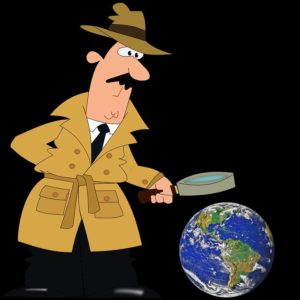 some of our group members going off task, but we tried to keep each other focused on finding the clues.
some of our group members going off task, but we tried to keep each other focused on finding the clues. - Did any members ignore others contributions during the discussion? No, I think our group did very well in listening to each others contributions, and would politely express our own opinions if we had a different idea.
- Were attempts made to encourage the participation of all members? Yes, we did try our best to include all our members and make sure that they participated and had a part(or clue) to look for.
- Did anyone monopolize the discussion? Was this productive for the group? Yes, two of us did have a bit more control over discussions, although that was because the other group member seemed to go off task often. This made the group a bit more productive, however, if all members participated the same amount each, we would have been even more productive.
- Was it necessary to motivate others to assist with the task completion? If so, what strategies did you use? Yes, it was necessary to motivate others to stay focused, but we tried to get them to help to complete the task by assigning a certain question for them to do, and by communicating with each other about the work we got done.
- What kind of strategies did your group members use to assist other group members in understanding the content? We made sure we all understood the content by answering any questions each other had about the assignment. We shared our answers and where we found it so we could verify that it was the correct answer.

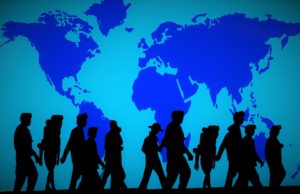 property. Without borders, there would be no order, which might suggest a nonexistent government. This would create chaos all over the world. In addition, if everyone wanted to live in the same place (without borders, they could live wherever they want to), it could lead to overpopulation and a complete drain of natural resources in that area. Overall, I think having no borders would affect the world in a more negative way than positive.
property. Without borders, there would be no order, which might suggest a nonexistent government. This would create chaos all over the world. In addition, if everyone wanted to live in the same place (without borders, they could live wherever they want to), it could lead to overpopulation and a complete drain of natural resources in that area. Overall, I think having no borders would affect the world in a more negative way than positive. e did a Current Events ion the quality of First Nation’s water. Here, we always have access to safe, clean, reliable water, but that’s not the case in many Indigenous communities. Some people might not think this is a huge issue, but if you put yourself in their shoes, you may find that life can be very difficult without clean tap water. So, what if your family was unable to use your tap water
e did a Current Events ion the quality of First Nation’s water. Here, we always have access to safe, clean, reliable water, but that’s not the case in many Indigenous communities. Some people might not think this is a huge issue, but if you put yourself in their shoes, you may find that life can be very difficult without clean tap water. So, what if your family was unable to use your tap water for a year? Well, you would have to spend a lot of time boiling water when when you could be doing other activities. your family would have to buy bottled water instead of drinking straight out of a tap. Most of all, it would make it extremely troublesome to carry out daily tasks including drinking, washing, cooking, watering, showering, or brushing teeth. When you think about it like this, you realize how hard life must be for these Indigenous peoples who are suffering because the government can’t supply safe water to these communities. Hopefully moving forward, the government will keep it’s promise to improve the quality of water to all the different nations of Canada.
for a year? Well, you would have to spend a lot of time boiling water when when you could be doing other activities. your family would have to buy bottled water instead of drinking straight out of a tap. Most of all, it would make it extremely troublesome to carry out daily tasks including drinking, washing, cooking, watering, showering, or brushing teeth. When you think about it like this, you realize how hard life must be for these Indigenous peoples who are suffering because the government can’t supply safe water to these communities. Hopefully moving forward, the government will keep it’s promise to improve the quality of water to all the different nations of Canada.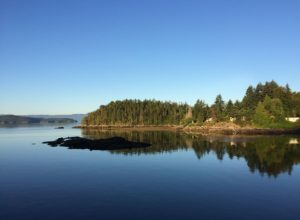
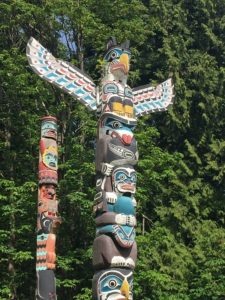 The Northwest Coast people’s art reflected their spiritual beliefs, ancestry, and wealth. It was made to impress others and also showed social status. They used cedar trees in various types of their art: totem poles, canoes, and masks. They used cedar bark and spruce roots to make hats, and shells were used to decorate button blankets and masks. They made copper shields, horn bowls, ladles, and spoons. They did engraving, made tattoos, and painted chests. They also used animal symbols in their family crests.
The Northwest Coast people’s art reflected their spiritual beliefs, ancestry, and wealth. It was made to impress others and also showed social status. They used cedar trees in various types of their art: totem poles, canoes, and masks. They used cedar bark and spruce roots to make hats, and shells were used to decorate button blankets and masks. They made copper shields, horn bowls, ladles, and spoons. They did engraving, made tattoos, and painted chests. They also used animal symbols in their family crests.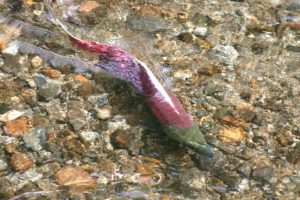 Ocean, they could get halibut, smelt, crab, seaweed, whale, clams, oysters, mussels, sea otters, seals, turtles, and oils. From the forests, they hunted deer, elk, mountain goat, and even bear. They also gathered plants from their environment for food. Above all, salmon was the most important food.
Ocean, they could get halibut, smelt, crab, seaweed, whale, clams, oysters, mussels, sea otters, seals, turtles, and oils. From the forests, they hunted deer, elk, mountain goat, and even bear. They also gathered plants from their environment for food. Above all, salmon was the most important food.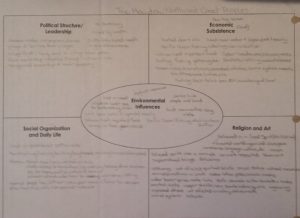 Works Cited:
Works Cited: